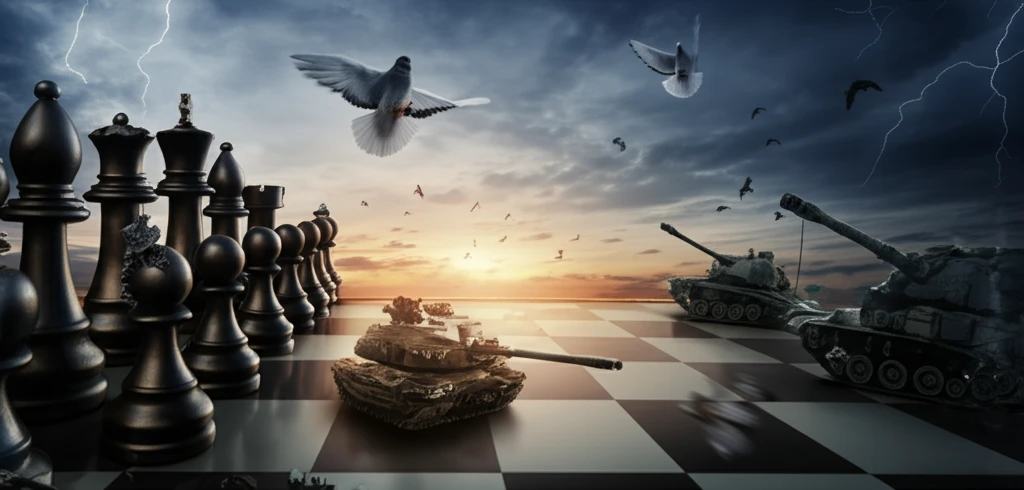
Decoding Global Conflict: Can Ancient Philosophy Help Us Understand Modern Warfare?
"Hobbes vs. Locke: Unpacking the Philosophical Battle Over International Anarchy"
The specter of conflict looms large in our contemporary world. From the ongoing tensions in Iraq and Afghanistan to the simmering conflicts in Eastern Europe, violence seems perpetually woven into the fabric of international relations. But is this perpetual state of conflict inevitable? Are we doomed to a Hobbesian world of constant struggle, or is there a path towards a more Lockean vision of peace and cooperation?
To understand the roots of global conflict, we must turn to the foundational thinkers who shaped Western political thought. Thomas Hobbes, with his grim vision of a state of nature characterized by a "war of all against all," stands in stark contrast to John Locke, who believed in the possibility of a society governed by reason and natural law. Their contrasting perspectives offer powerful lenses through which to analyze the chaotic state of the contemporary world system.
This exploration will delve into the core arguments of Hobbes' Leviathan and Locke's Second Treatise of Civil Government, examining their relevance to modern conflicts like the Iraq War and the Russia-Georgia conflict. By comparing and contrasting these philosophical frameworks, we can gain deeper insights into the enduring challenges of international relations and the elusive quest for global order.
The Enduring Anarchy: A Hobbesian Perspective

Hobbes argued that in the absence of a common power to enforce order, human life would be a constant state of war, driven by self-interest and fear. In this "state of nature," there is no morality, no justice, and no security. Each individual is driven by a relentless pursuit of self-preservation, leading to a chaotic and violent existence. The international system, according to this view, mirrors this state of nature, with sovereign states constantly vying for power and security in a world without a true overarching authority.
- Self-Interest: Nations prioritize their own security and advantage.
- Lack of Authority: No global power can truly enforce international law.
- Moral Distance: Reduced empathy for those affected by conflict.
- Constant Competition: States are always vying for power.
Beyond Idealism: Reconciling Philosophy and Reality
While Locke's vision of a world governed by reason and natural law remains a compelling ideal, the realities of international relations often fall far short. The enduring influence of Hobbesian thinking reminds us that power, self-interest, and the ever-present threat of conflict continue to shape the global landscape. Understanding these competing philosophical perspectives is crucial for navigating the complexities of international relations and striving for a more peaceful and just world, even if that goal remains perpetually elusive.
